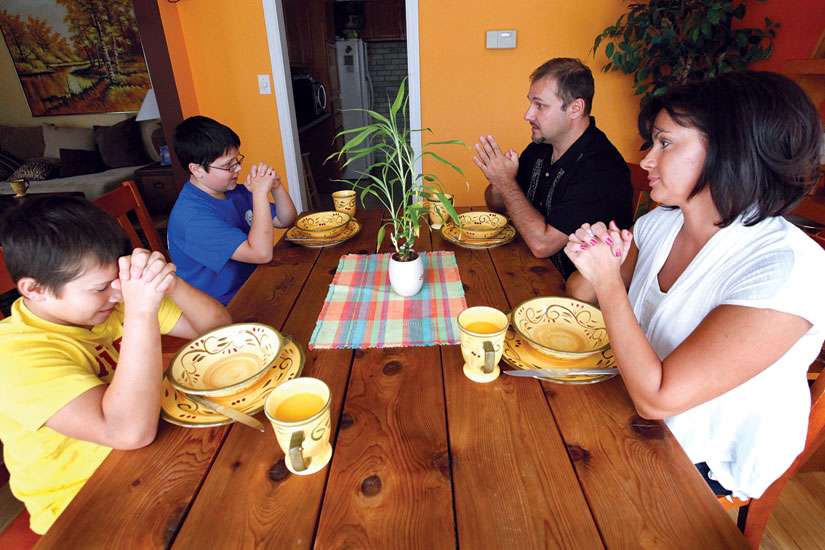The Vatican has always recognized the importance of the domestic church, which is the family living its faith in the context of Christian values. The domestic church is where people exercise their baptismal priesthood in the family home. It is where we tell powerful stories about our faith and our struggles, and where these stories are learned and eventually repeated.
Often when we speak of family we think of mom and dad, children and grandparents, but we sometimes forget that there are many different types of families in our communities today. There are single-parent families, including those parented by the widowed, divorced and separated, and there are myriad other expressions of family life. But regardless of how a family is constituted, the domestic church remains an essential component of a living faith. It is where parents and children exercise their baptismal priesthood in the family home.
So how does this domestic church work? According to the Vatican II document Dogmatic Constitution on the Church, “The family is so to speak the domestic church.” It is in the context of the family that we first encounter God and develop that relationship through our experiences.
The concept of the domestic church is often overlooked, but it is essential that Catholic schools have parents who are aware of their role in this church. The domestic church can be seen in several simple ways. It can be praying at meals or at bedtime. It can be saying the rosary and placing crucifixes prominently in homes. It can be placing prayer cards or prayer tables in homes, as often happens in Catholic schools. These prayer tables, called oratories, could include pictures of family members we wish to remember as well as sacramental or sacred objects.
The domestic church celebrates the liturgical seasons, but also secular events which can become opportunities to see God breaking into our lives, whether that be at birthdays, anniversaries, receiving or passing of a pet, engagement of a family member, volunteering at food banks, or visiting an elderly or sick family member. Catholic schools provide an opportunity to go deeper into our faith by liturgically celebrating events that gather us together as a community.
So how can we support the concept of the domestic church?
Schools can begin by recognizing a responsibility to assist parents in understanding and supporting the concept of the domestic church. That can happen through workshops at school council meetings, newsletters or websites that promote upcoming events, liturgical seasons, family prayer or establishing small prayer tables in homes. Parishes and dioceses should use church bulletins and other media to communicate the importance of the domestic church. Ideally, church and school should come together to build the domestic church and demonstrate how it should be lived out.
To ensure strong Catholic schools it is essential to support families that chose Catholic education. That means not only supporting academic achievement, but encouraging families to develop strong expressions of their faith in a family setting, by building up the domestic church.
The domestic church has helped Catholicism flourish in many countries where religion has been oppressed. In several oppressive regimes that made it difficult to worship at a Catholic church, faith was safeguarded and celebrated in family homes. In many countries, this allowed faith to survive and once again flourish after a regime change. While Canada does not suppress religion, it can learn from the example of others and recognize the importance of encouraging families and helping them sustain a strong foundation for the domestic church.
If we really care about the long-term faith of students and survival of Catholic schools, we must care about the families that sustain Catholic education and find ways to support them. For those who say workshops, seminars, newsletters and websites won’t work because too many newsletters go unread and too many meeting are poorly attended, I am reminded of a line from a homily I heard over Christmas:”Jesus said preach to them, He didn’t say count them.”
So regardless of how many express interest, they deserve encouragement to help that their families become living embodiments of the domestic church in Canada.
(Kostoff is the Director of Education for the Dufferin-Peel Catholic District School Board and author of Auditing Our Catholic Schools.)

